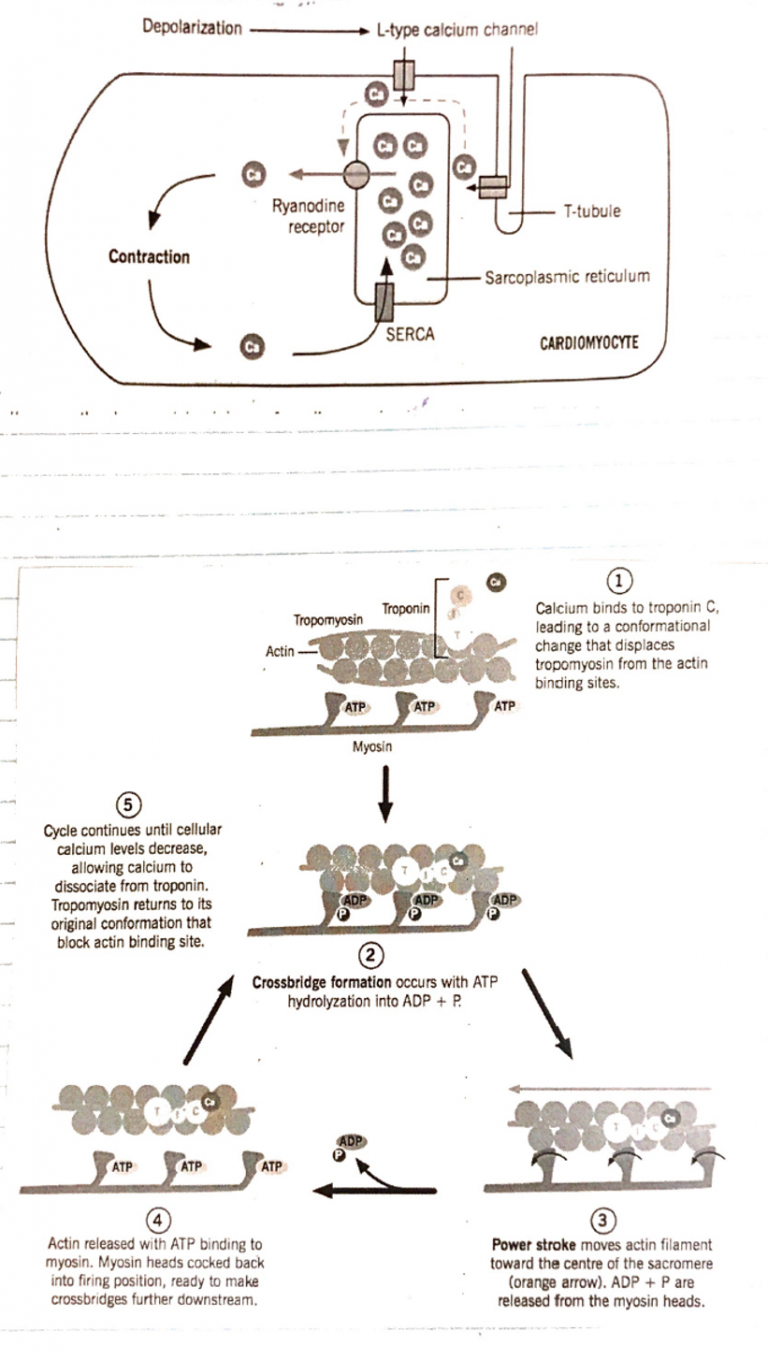G2iii: CVS Electrical Syllabus: Mechanical events of cardiac cycle
Contractile Elements
- Myosin = thick filaments with globular heads contains myosin APTase
- Actin = thin filaments
Regulatory Elements
- Tropomyosin = lies between actin filaments blocking the Myosin Binding Site
- Troponin = complex with 3 subunits sitting at regular intervals along actin strands
- TnT = ties troponin complex to actin + myosin
- TnI = inhibits activity of ATPase
- TnC = binds calcium ions that regulate contraction
- AP arrives at cell membrane → cell reaches threshold @ -40mV L-type Ca2+ channels open
- Insufficient to trigger contraction of myofibrils
- Amplified Ca2+ influx by the CALCIUM INDUCED CALCIUM RELEASE mechanism
- Ca2+ binds RYANODINE RECEPTOR of myocyte SR
- Mass Ca2+ release from SR
- Ca2+ binds TnC on Actin Filaments
- Displaces TROPOMYOSIN by conformational ∆
- Exposes Myosin Binding Site
- Hydrolysis of ATP on Myosin head
- Induces CROSSBRIDGE FORMATION between Myosin Head & Actin
NB: strength of contraction proportional to no. of cross-bridges formed
- This cycle repeats as Myosin travels further along actin molecules as long as there’s enough Ca2+ (to inhibit action of TnI) & ATP to drive crossbridge formation
- L-type channels inactivate (100 msec)
- ↓[Ca2+] = CICR trigger abolished
- SERCA pumps on SR pump Ca2+ back into SR
- Ca2+ dissociates from TnC
- Tropomyosin inhibition is restored

